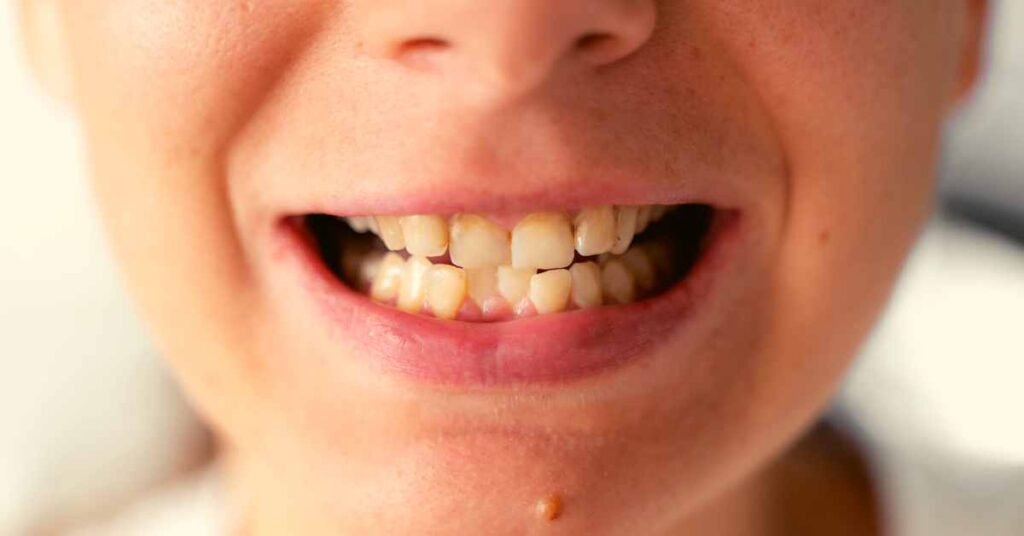Tea has been cherished as a beverage with numerous health benefits, ranging from antioxidant properties to potential cardiovascular advantages.
However, in recent times, a claim has circulated that drinking tea can stain bones.
This assertion has raised eyebrows and sparked curiosity among tea enthusiasts and health-conscious individuals alike.
In this article, we will delve into the origins of this claim, examine the scientific basis behind it, and explore whether tea truly can stain bones.
The Claim

The notion that tea can stain bones is not a widely recognized or scientifically proven concept.
However, some individuals believe that the tannins present in tea, specifically black tea, can accumulate in bones over time, leading to a discoloration or staining effect.
Tannins are polyphenolic compounds found in various plant-based foods and beverages, and they are known for their astringent properties.
Understanding Tannins
Tannins are organic substances that can bind to and precipitate proteins. In tea, they contribute to the beverage’s astringency, imparting a slightly bitter taste.
Black tea, in particular, contains higher levels of tannins compared to other tea varieties such as green or white tea.
Tannins are not unique to tea; they are found in various plant foods, including grapes, berries, nuts, and even some vegetables.
While their astringent taste might affect the palate, the impact of tannins on bone health has not been extensively studied or linked to staining.
The Skeletal System and Bone Health

Bones are dynamic tissues that undergo constant remodeling through a process known as bone turnover.
This process involves the removal of old or damaged bone tissue (resorption) and the formation of new bone tissue (ossification).
Calcium and phosphate are essential minerals for bone strength, and they are regulated by various factors, including
hormones and dietary intake.
To assess the claim that tea can stain bones, we must consider the complex nature of bone composition and the mechanisms governing bone health.
Bone staining, if it were to occur, would imply a direct interaction between the compounds in tea and the mineralized matrix of bones.
Scientific Perspective
There is no conclusive scientific evidence supporting the idea that tea can stain bones.
Research on the effects of tea consumption has primarily focused on its potential health benefits, such as antioxidant properties, cardiovascular support, and anti-inflammatory effects.
Several studies have explored the impact of tea consumption on bone health.

Some research suggests that certain compounds in tea, including flavonoids, may have a positive effect on bone density and may contribute to the prevention of osteoporosis.
However, these studies generally highlight the potential benefits of tea rather than any adverse effects on bone coloration.
It’s important to note that scientific understanding evolves, and new research may have emerged since my last update.
Therefore, it’s recommended to consult the latest scientific literature for the most up-to-date information on this topic.
Addressing the Claim: Lack of Anecdotal Evidence
Apart from the absence of scientific evidence, there is a lack of widespread anecdotal reports or documented cases of individuals experiencing bone staining as a result of tea consumption.
If tea had a notable impact on bone coloration, it would likely have been observed and documented by healthcare professionals and researchers.
Tea and Tooth Staining
While the claim of tea staining bones lacks substantial scientific support, it’s worth mentioning that tea, especially black tea, is known to have staining effects on teeth.

The tannins and pigments in tea can contribute to the formation of dental stains over time. However, this staining is superficial and occurs on the enamel surface rather than within the internal structure of the teeth.
Final Word
Tea consumption has been associated with various health benefits, and its impact on bone health has generally been explored in a positive light.
The complex nature of bone composition and turnover makes it unlikely for tea compounds to cause staining.
As with any health-related claim, it’s crucial to approach information critically and consider the available scientific evidence.
If there have been new developments or studies on this topic since my last update, I recommend consulting the latest research for a more comprehensive understanding.
As of now, tea enthusiasts can continue to enjoy their favorite brews with confidence in the absence of compelling evidence linking tea consumption to bone staining.
MEDICAL DISCLAIMER
Itsnevernotteatime.com cannot and does not contain medical/health advice. The medical/health information is provided for general and educational purposes only and is not a substitute for professional advice.




